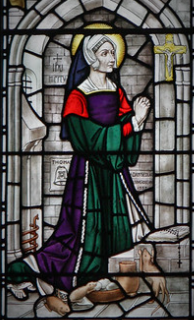Saturday in the 6th Week of Easter
Mass Readings
First Reading – Acts 18:23-28
After staying in Antioch some time, Paul left and traveled in orderly sequence through the Galatian country and Phrygia, bringing strength to all the disciples. A Jew named Apollos, a native of Alexandria, an eloquent speaker, arrived in Ephesus. He was an authority on the Scriptures. He had been instructed in the Way of the Lord and, with ardent spirit, spoke and taught accurately about Jesus, although he knew only the baptism of John. He began to speak boldly in the synagogue; but when Priscilla and Aquila heard him, they took him aside and explained to him the Way of God more accurately. And when he wanted to cross to Achaia, the brothers encouraged him and wrote to the disciples there to welcome him. After his arrival he gave great assistance to those who had come to believe through grace. He vigorously refuted the Jews in public, establishing from the Scriptures that the Christ is Jesus.
Responsorial Psalm – 47:2-3, 8-9, 10 (R.8a)
R. God is king of all the earth.
or:
R. Alleluia.
All you peoples, clap your hands;
shout to God with cries of gladness.
For the LORD, the Most High, the awesome,
is the great king over all the earth. R.
For king of all the earth is God;
sing hymns of praise.
God reigns over the nations,
God sits upon his holy throne. R.
The princes of the peoples are gathered together
with the people of the God of Abraham.
For God’s are the guardians of the earth;
he is supreme. R.
Gospel – Jn 16:23b-28
Jesus said to his disciples: “Amen, amen, I say to you, whatever you ask the Father in my name he will give you. Until now you have not asked anything in my name; ask and you will receive, so that your joy may be complete. “I have told you this in figures of speech. The hour is coming when I will no longer speak to you in figures but I will tell you clearly about the Father. On that day you will ask in my name, and I do not tell you that I will ask the Father for you. For the Father himself loves you, because you have loved me and have come to believe that I came from God. I came from the Father and have come into the world. Now I am leaving the world and going back to the Father.”
Featured Saints
Blessed Margaret Pole, widow and martyr (†1541). Countess of Salisbury, she was despoiled of all her possessions and beheaded at age 68, after suffering for two years in the Tower of London, for opposing the divorce of King Henry VIII.
St. William, monk (†812). He left life at the imperial court and founded the Monastery of Gellone, near Narbonne, France.
St. Germain, bishop (†576). During his tenure as abbot of the Benedictine Monastery of St. Symphorien in Autun, France, he was called to the Episcopal See of Paris. He was a zealous shepherd of souls.
St. Justus of Urgell, bishop (†sixth century). Bishop of Urgell, Spain, who wrote a commentary on the Song of Songs and participated in Spanish councils.
St. Ubaldesca, virgin (†1206). At fifteen years of age she entered the Order of St. John of Jerusalem, dedicating herself to the care of the sick and needy for 55 years.
Blessed Lanfranc of Canterbury, bishop (†1089). As Benedictine Abbot of Caen, France, he initiated an effective reform of monastic discipline. He continued his work in England after his appointment as Archbishop of Canterbury.
Blessed Herculanus of Piegaro, priest (†1451). Outstanding Franciscan preacher, known for his austere life and miracles; he died in the monastery of Castelnuovo di Garfagnana in Lucca (Italy).
Blessed Wladislav Demski, martyr (†1940). He died in the concentration camp of Sachsenhausen, Germany, as a result of torture.
Blessed Maria Bartholomew Bagnesi, virgin (†1577). Tertiary of the Order of Penance of St. Dominic, she endured a serious illness with heroic patience for more than forty years.





